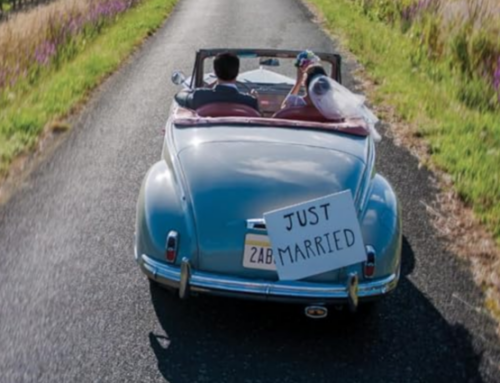The strongest point of Netflix’s series “The Crown” is that it shows the moral decline of Britain and the West through the moral decline of one British family. As such, it is a sad and searing witness to the same state of fractured families and mutilated marriages we face across the waning West.
 Having completed the most recent series of The Crown— Netflix’ royal soap opera, it strikes me that the most important aspect of the series is not its historical accuracy, nor its political commentary.
Having completed the most recent series of The Crown— Netflix’ royal soap opera, it strikes me that the most important aspect of the series is not its historical accuracy, nor its political commentary.
No doubt many who are ignorant of the factual history will view The Crown as a documentary. That can’t be helped. Dramatists will always sniff out the intrinsic human dramas locked within historical events and craft their works around the conflicts roiling within the hearts and heads of the real dramatis personae.
Shakespeare invented characters and scenes in his history plays, and the writers of plays and films based on historical characters and events will always take liberties. Anyone who views The Crown with his brain engaged will understand that it is a dramatization based on real events and persons.
During the course of the series, it has been interesting to observe Her Majesty’s encounters with a long line of prime ministers—each one representing the changing fortunes of Britain in his or her era, while the queen remains a constant. The producer’s own left-of-center bias colors the political commentary, but on the whole the show accurately portrays how cultural fashions shifted while the queen retained, in her person and position, solid Victorian values and virtues.
What has interested me the most, however, is the drama that unfolds within the royal family. While Elizabeth II retains her steady, dutiful posture—maintaining her composure and dignity in the midst of the tempest of the twentieth century, her own family suffers the storm damage. The sad failure of her sister’s marriage, then the scandals and disintegration of her children’s marriages reflect the gradual abandonment of the Christian values Elizabeth herself upheld.
In this fifth series, The Crown chronicles these failures—focussing especially on the disastrous marriage of now King Charles III and Diana, Princess of Wales. As the fourth series unfolded, both Charles and Diana were portrayed as spoiled, whining young people. In a biting scene in the final episode of series four, the queen (Olivia Coleman) berates the heir to the throne, pointing out how he and Diana are perceived by the whole world as entitled, immature people who do nothing but complain. She ends by challenging him, “Do you ever intend to be king?” When he replies in the affirmative she snaps, “Then start behaving like one!”
In series five, Charles (Dominic West) and Diana (Elizabeth Debicki) show the end result of Charles’ and Diana’s self-indulgent attitudes and actions. Now separated, Charles takes refuge in the arms of his longtime mistress Camilla, and Diana seeks comfort with a Pakistani heart surgeon. While it is easy to moralize and judge them, the word “spoiled” is apt in a deeper way than the usual condescending judgement. In their own ways both were seemingly “spoiled” by the dysfunctional families in which they were raised.
The monarch was a distant mother to Charles, while the Duke of Edinburgh, who coped with his own fractured childhood with a mixture of bravado and bravery, expected his oldest son to assume the same stiff upper lip. It didn’t work. The result was a weak, petulant man dependent on a mistress who, like a royal nanny, “knew how to make him happy.”
Meanwhile, Diana, the product of a broken home, was insecure, lonely, and unloved. Charles could not be the loving, strong father figure she needed, and she was incapable of being the strong, caring mother figure that he needed.
I don’t pretend that my armchair analysis of King Charles and his late wife is necessarily true to history. Instead it is an analysis of the characters portrayed in The Crown. As such, the series, using the royal family as a ready-made foil, comments on the state of the family in Britain and the West generally.
In “Couple 31”— the penultimate episode of the fifth series—Charles and Diana’s impending divorce is intercut with interviews of ordinary British couples who are also about to be divorced. As the episode unfolds we see the proceedings in the stark, modern courtroom where the divorces are finalized. One by one the court officials stamp the divorce decrees until, at the end, the divorce of “Couple 31”—the Prince and Princess of Wales— is rubber-stamped. The resulting emotion is that of stark, modern, utilitarian British bureaucracy stamping its grim approval on the destruction of the hearth and home.
“And thus the whirligig of time brings in his revenges.” While the Queen held to a simple Christian faith and solid Christian virtues during her reign, the rest of Britain ran headlong into the affluent degeneracy of the sixties and seventies—a decadence and moral decrepitude embodied by her children and their spouses. That this drama of degeneracy and divorce was played out beneath the duvets of aristocratic grandeur and magnificent privilege makes the denouement all the more tragic.
The Crown’s strongest point, therefore, is that it shows the moral decline of Britain and the West through the moral decline of one British family. As such, it is a sad and searing witness to the same state of fractured families and mutilated marriages we face across the waning West.
Dwight Longenecker’s latest book, Beheading Hydra- A Radical Plan for Christians in an Atheistic Age is available at Amazon and at dwightlongenecker.com
The Imaginative Conservative applies the principle of appreciation to the discussion of culture and politics—we approach dialogue with magnanimity rather than with mere civility. Will you help us remain a refreshing oasis in the increasingly contentious arena of modern discourse? Please consider donating now.
The featured image is courtesy of Pixabay.







The question I ponder is which came first the decay of the culture or the decay of the monarchy. There is an implication in the show that without the monarchy there is no Britain which suggests to me that the monarchy failed. Yet Charles keeps stating that the culture is shifting and the Monarchy is not in tune. I have the thought that culture is formed by the Aristocratic class however they are defined. The show gives a really good look at the decline of Aristocratic Culture as it is reduced to nothing more then material possessions and material displays thus there is no Aristocratic leadership. I think the answer to this is significant for both America and Britain. Both sides have lost the leadership of the better people which is most adequately depicted by the current Biden crowd.
The Crown is NOT a Documentary. Everyone should remember that.